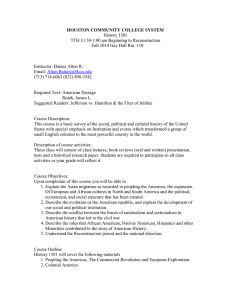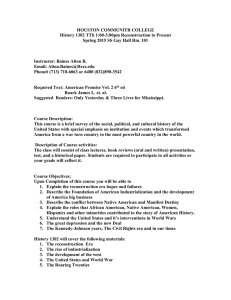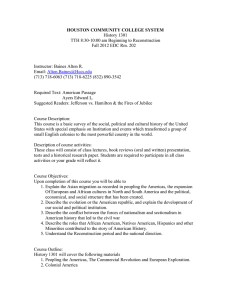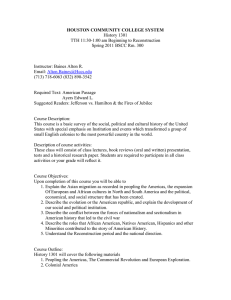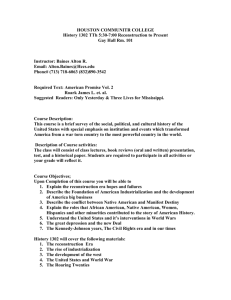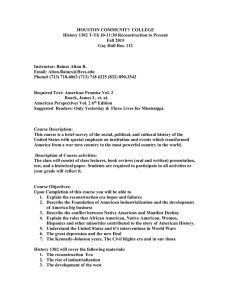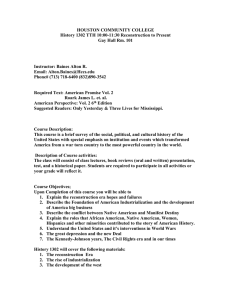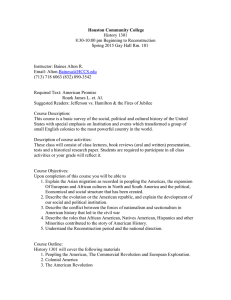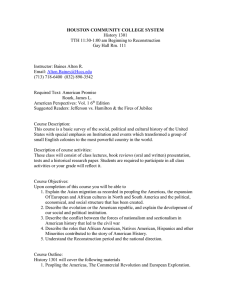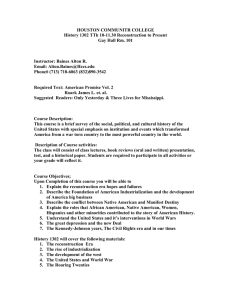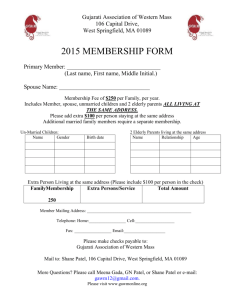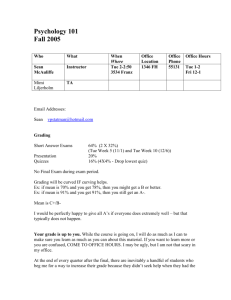course outline
advertisement
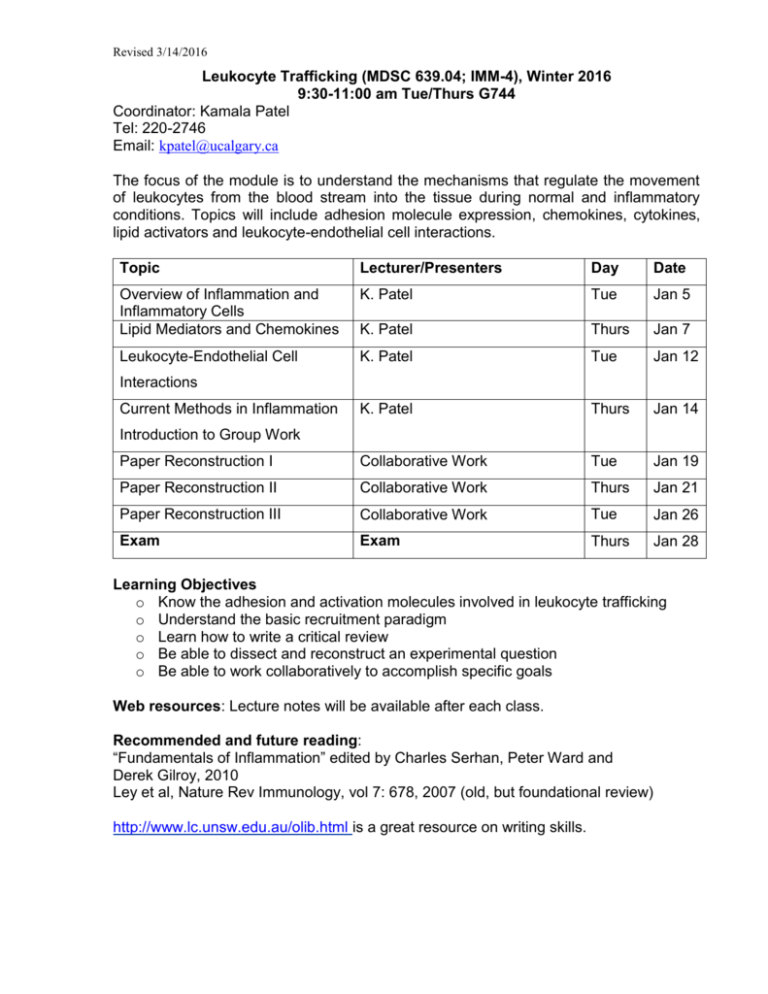
Revised 3/14/2016 Leukocyte Trafficking (MDSC 639.04; IMM-4), Winter 2016 9:30-11:00 am Tue/Thurs G744 Coordinator: Kamala Patel Tel: 220-2746 Email: kpatel@ucalgary.ca The focus of the module is to understand the mechanisms that regulate the movement of leukocytes from the blood stream into the tissue during normal and inflammatory conditions. Topics will include adhesion molecule expression, chemokines, cytokines, lipid activators and leukocyte-endothelial cell interactions. Topic Lecturer/Presenters Day Date Overview of Inflammation and Inflammatory Cells Lipid Mediators and Chemokines K. Patel Tue Jan 5 K. Patel Thurs Jan 7 Leukocyte-Endothelial Cell K. Patel Tue Jan 12 K. Patel Thurs Jan 14 Paper Reconstruction I Collaborative Work Tue Jan 19 Paper Reconstruction II Collaborative Work Thurs Jan 21 Paper Reconstruction III Collaborative Work Tue Jan 26 Exam Exam Thurs Jan 28 Interactions Current Methods in Inflammation Introduction to Group Work Learning Objectives o Know the adhesion and activation molecules involved in leukocyte trafficking o Understand the basic recruitment paradigm o Learn how to write a critical review o Be able to dissect and reconstruct an experimental question o Be able to work collaboratively to accomplish specific goals Web resources: Lecture notes will be available after each class. Recommended and future reading: “Fundamentals of Inflammation” edited by Charles Serhan, Peter Ward and Derek Gilroy, 2010 Ley et al, Nature Rev Immunology, vol 7: 678, 2007 (old, but foundational review) http://www.lc.unsw.edu.au/olib.html is a great resource on writing skills. Revised 3/14/2016 Collaborative work Working as a team is becoming increasingly important in research. The group work is a tool designed to gain deeper understanding of the material, allow you to work as a team to accomplish a goal and think about scientific questions related to leukocyte trafficking in a manner that reflects future tasks such as candidacy examinations and thesis defenses. Potential topics for group work: Inflammation as it relates to lipid mediators, chemokines and the leukocyte recruitment cascade. You will note that these are the topics covered in the lectures. The group work is designed to use the framework provided in the lectures and move into current topics in those areas. Time during class will be set aside to work on these goals. In addition, preparation and time outside of class will be needed to prepare for the debate. The method for assessment of group work will be discussed in class. Paper critiques (written) There are three written assignments for this course involving critical assessments of journal articles. Please reference http://www.lc.unsw.edu.au/onlib/critrev.html for details on how to write a critical review. The assessment should be no more than two pages, 12-point, single-spaced and address the strengths and weaknesses of the paper. The critique should be supported by the relevant literature. References are not included in the 2-page limit. Critiques will be due by noon on the following dates: Assignment #1 (based on the first paper) Jan 26th Assignment #2 (based on the second paper) Feb 3rd (recommended that you complete this sooner, but did not want the due date to coincide with the exam) Assignment #3 (based on either the debate or the third paper) Feb 5th The exam will reflect the content of the lectures and the papers. Methods of Assessment and Grading Scheme Exam 40% Collaborative work 30% - 10/10/10 paper reconstruction/debate/peer review Written critiques 30% A AB+ B B- 4.0 excellent 3.7 well above average 3.3 above average 3.0 average below average 86% 80% 75% 70% 65%
